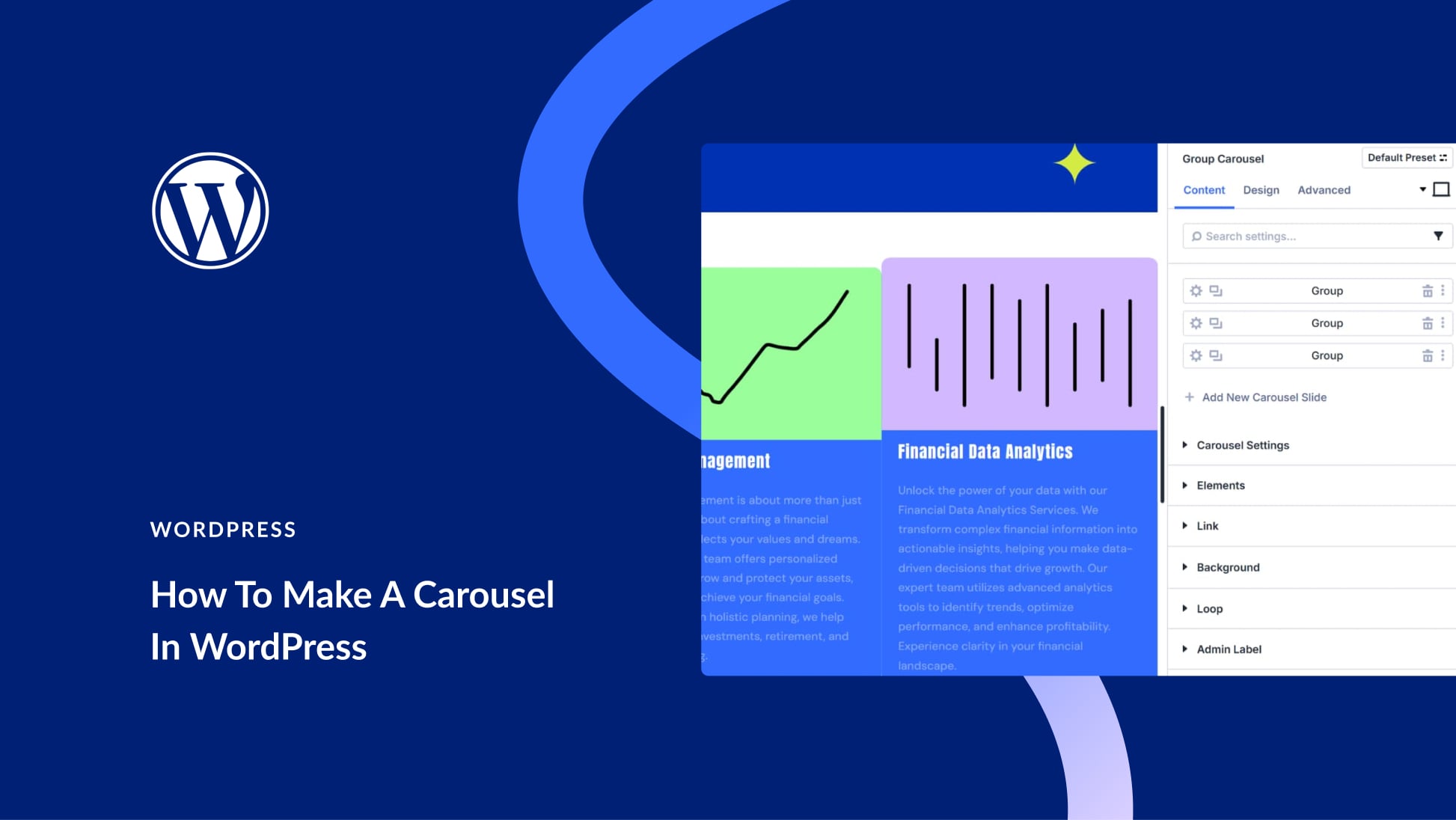WordPress is one of the most well-known and widely-used content management systems (CMS) on the web. But how popular is it, exactly? What is the WordPress market share, and how much of the web runs on its infrastructure?
From small personal blogs to major corporate and e-commerce websites, a huge swath of the internet is powered by WordPress. Major, recognizable brands such as The New York Post, Bloomberg, TED, Blender, TripAdvisor, Zillow, Zoom, Etsy, and BBC America (and many more) use a WordPress framework.
In this post, we’ll break down the basics around the WordPress market share and talk about how it compares to its competitors. Let’s jump into it.
How WordPress Stacks Up Against the Competition
WordPress runs a large portion of the CMS-based websites on the internet. Depending on whose data you study, the percentage ranges anywhere from approximately 44% to 65%. Now, let’s dig a little deeper into some recent numbers.
According to 2021 case study research conducted by GigaPress, WordPress market share breaks down like this:
- Roughly 44.26% of CMS websites run on WordPress.
- Of the top 10,000 websites online (based on traffic), 10.57% of them use WordPress.
- Of the top 1,000 sites online, 4.4% of them are running on WordPress
The top sites included in the GigaPress study were identified and ranked by Alexa Top Sites, powered by Amazon. Most of the websites listed actually run on a private CMS of one kind or another. But outside of private site infrastructure, WordPress runs the bulk of the sites.
Contrasting research by W3 Techs showed WordPress as holding a 65.3% market share among websites using a known content management system. According to W3 Techs, WordPress powers the bulk of CMS websites, with Shopify coming in second place at just 6.7%.
That is a pretty wide gap between first and second place. It’s clear that the WordPress market share is quite significant. Now, let’s look at a few reasons why WordPress is such a popular website hosting platform.
Why is WordPress Such a Popular Platform?
WordPress is popular among website owners for a number of reasons. It’s a versatile platform, which works well for websites of all sizes and functions. Sites of all kinds are hosted on WordPress, from small blogs and business websites to robust e-commerce sites.
For website owners with a smaller budget and little to no technical savvy, it’s possible to get started with a good, free WordPress hosting provider like WordPress.com, where you’ll get a free website, hosting, and a basic theme. Even though a free site doesn’t have the same variety of features as a self-hosted WordPress site, it’s still fairly flexible. There are multiple themes to choose from; even for beginners, the learning curve isn’t too steep. This is a big draw for many users.
The more customizable side of WordPress comes via WordPress.org. It’s possible to build a powerful, multifunctional website with your own domain hosting and a custom theme tailored to your needs — and your audience’s. There are also more than 59,000 free plugins created by developers to help users power up their sites.
If you’re a developer, you can code your self-hosted WordPress website or bring in an outside developer to help you out. Alternatively, you can use a template or a site builder such as Divi to let the look and functionality you’re going for.
(If you’re interested, we have a complete rundown of WordPress.org vs .com to see these differences in detail.)
Because WordPress is open-source, website owners have a wide range of possibilities for where they want their website to go. The site can be as simple or as complex as you want it to be. And since WordPress integrates with multiple platforms, it’s possible to create almost anything you want.
The huge community around WordPress also makes it fairly simple to get help. Even though the open-source nature of the platform means there’s no in-person tech support, users can connect with developers via the forum. And many web hosts such as Cloudways, SiteGround, and Pressable have live support that fills this role nicely. In addition, there are useful and free resources online to help you solve website issues.
WordPress vs Competitor CMS-Based Platforms
Wondering how WordPress compares to some of its direct competitors for market share? We’ve created a collection of guides to help you get a feel for the differences between WordPress and a number of other CMS-based platforms. With WordPress as dominant as it is, we wanted to take it head-to-head against some of the top alternatives out there. Here’s how they stack up:
Pay attention to the features they offer. While we here at Elegant Themes are big fans of WordPress and what you can do with it, we always want to present a fair view of what’s out there and how WP compares to its competitors. Especially when discussing market share like this.
Ramifications of Using WordPress
Wherever you decide to host your website, you’ll need to take stock of its upsides and downsides. Choosing to use WordPress over another CMS has its pros and cons. Just like any other tech platform, you will want to suss out what those are. As we mentioned earlier, many top brands and outlets have found the pros far outweigh the cons.
For WordPress website owners, the platform has been consistent and long-lived. The CMS has been around for almost 19 years, and its performance, support, and growth have been reliable. WordPress has proven itself to be a continually evolving, adaptable platform that changes with the times and develops alongside growing trends. Users who select the platform will know that it’s possible to continually improve and fine-tune their online space.
The biggest con of using WordPress goes hand-in-hand with its upgrades and changes. Website owners will need to keep up with current Google trends and algorithm updates. In addition, they’ll need to monitor any potential security updates they’ll need to roll out on their sites over time. Properly optimizing a WordPress website requires monitoring and adjustments over time — it’s not a set-it-and-forget-it deal, whereas some of its competitors handle that sort of monitoring and adjustment for you.
Conclusion
The WordPress market share alone is powerful social proof in the platform’s favor. This is a testament to WordPress’s versatility and reliability for users and websites of all kinds. Now that you understand where WordPress stands in terms of its widespread use on the web, you can make the best decision moving forward.
Do you run a WordPress website? If not, does your knowing more about their market share make you want to consider starting one? Why or why not? Drop us a comment and let us know what you think.
Featured image via Leremy / shutterstock.com









Leave A Reply